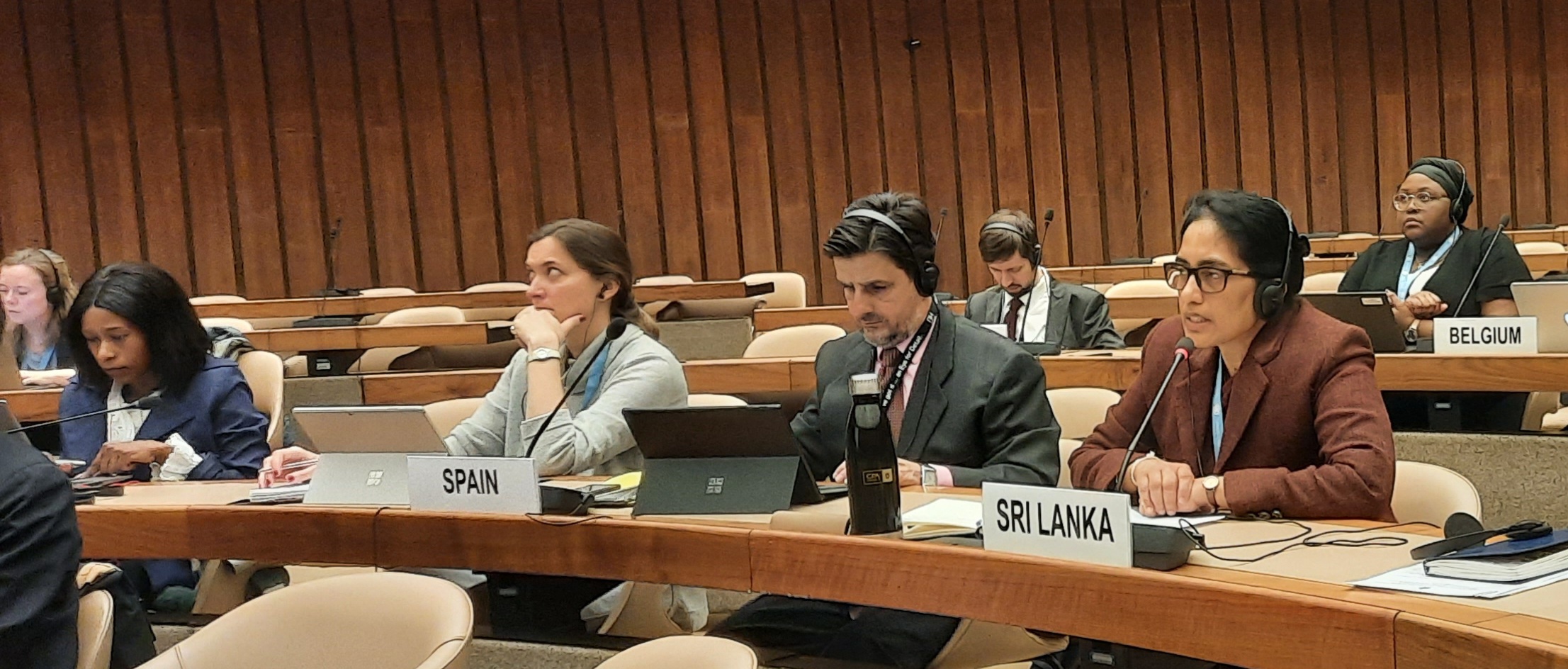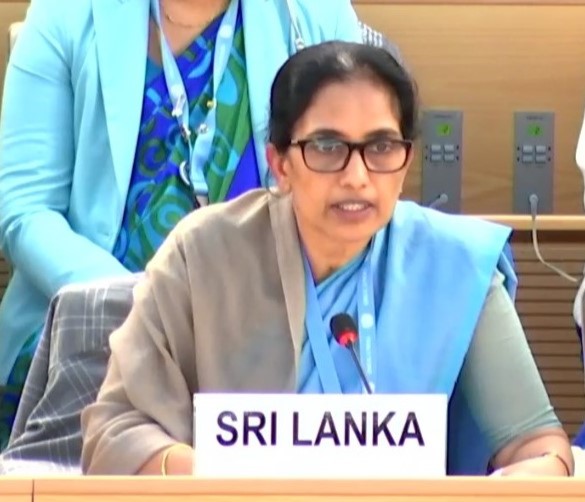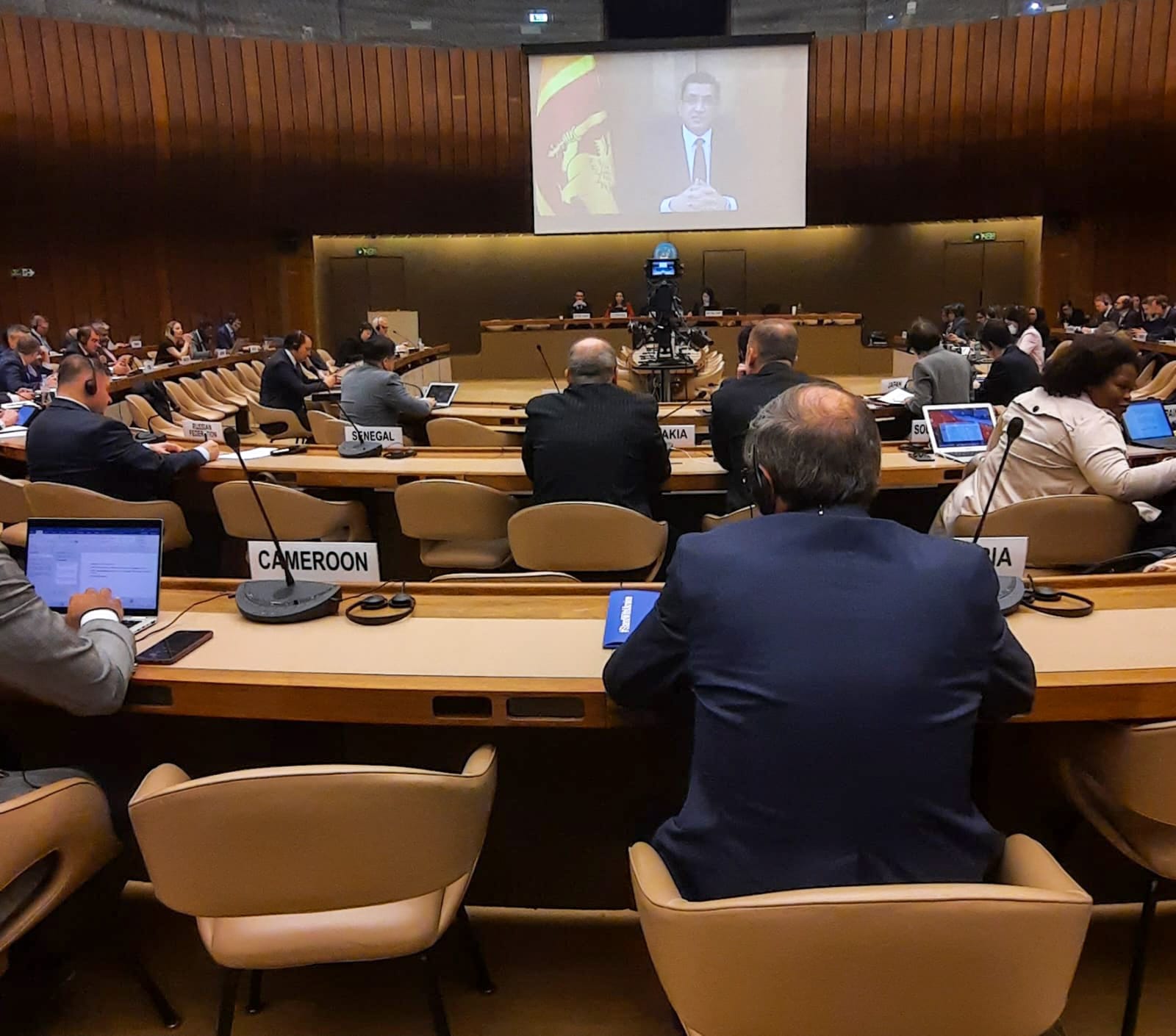
On the invitation of the Austrian Federal Ministry for European and International Affairs, Foreign Secretary Aruni Wijewardane participated as a panellist at the “Humanity at the Crossroads: Autonomous Weapons Systems and the Challenge of Regulation” Conference held from 29-30 April 2024 at the Hofburg Palace in Vienna, Austria.
Organised by the Austrian Federal Ministry for European and International Affairs with a view to addressing concerns and challenges related to the use of Lethal Autonomous Weapons Systems (LAWS), the Conference was attended by more than 1000 participants from 144 countries. The attendees included high-level representations from several States, the United Nations, international and regional organisations, academia, think tanks, industry and civil society.
Speaking at its high-level panel discussion on “Geopolitics and machine politics: How to move forward on LAWS?” Foreign Secretary Wijewardane reaffirmed Sri Lanka’s long-standing policy on advocacy for conventional and WMD disarmament and application of humanitarian principles in warfare, including supporting a legally-binding instrument regulating and prohibiting the use of LAWS . The Panellists included Minister for Europe and Foreign Affairs of Albania Igli Hasani, Minister of Foreign Affairs and International Co-operation of the Republic of Sierra Leone Timothy Musa Kabba, and United Nations High Representative for Disarmament Affairs Izumi Nakamitsu. Sri Lanka was a main sponsor of the first ever UNGA resolution on LAWS adopted last year.
In her bilateral engagements which followed the Conference, Foreign Secretary Wijewardane held discussions with Foreign Policy Advisor to the Chancellor of Austria Peter Launsky and also with her Austrian counterpart Nikolaus Marschik, Secretary General of the Federal Ministry for European and International Affairs of Austria. The meetings took place at an important juncture as the two countries mark the 70th anniversary of diplomatic ties this year. Foreign Secretary Wijewardane apprised Secretary General Marschik of the recent progress made by Sri Lanka in the economic front and covered a wide range of bilateral matters including of investment, energy transition, migration & mobility, visa and tourism promotion.
The Foreign Secretary also met Chairman of the Vienna Philharmonic Orchestra Professor Daniel Froschauer and exchanged views on the proposed musical collaboration between the two countries.
The Foreign Secretary was accompanied by the Ambassador of Sri Lanka to Austria and officials of the Embassy and Permanent Mission of Sri Lanka in Vienna.
Embassy and Permanent Mission of Sri Lanka
Vienna
02 May 2024
Statement by Her Excellency Himalee Arunatilaka, Ambassador and Permanent Representative of Sri Lanka to the United Nations in Geneva
Thematic Debate of the Conference on Disarmament
Agenda Item 2 – Prevention of nuclear war, including all related matters
12 March 2024

Mr. President
I join other delegations in thanking you for your leadership in guiding our deliberations in a positive direction and for allowing this discussions under agenda item 2.
Statement by Sri Lanka
First session of the 2024 CCW Group of Governmental Experts on emerging technologies in the area of Lethal Autonomous Weapons Systems (GGE on LAWS),4-8 March 2024
Agenda Item 5
Mr. Chair,
Let me congratulate you on assuming the role as the Chair of the Group and please be assured of the fullest cooperation and support of my delegation for the success of our work.
Mr. Chair,
We are pleased to note that over the past years, the mandate of the GGE on LAWS has evolved in a stronger and positive direction through the extensive deliberations of the Group. Today, we have before us, the most ambitious mandate since the establishment of the GGE entrusted ‘to further consider and formulate, by consensus, a set of elements of an instrument’.
Mr. Chair,
Emanating from the discussions of the meetings of the GGE held last year, Sri Lanka strongly believes that the mandate of the GGE on LAWS for this year should be interpreted in a manner that will allow a more holistic approach to cover possible ‘elements of an instrument’ and ‘other possible measures’ to address emerging technologies in the area of lethal autonomous weapons systems.
With a view to organize the work of the GGE based on the new mandate to be more effective and outcome oriented and furthermore to make the objectives and focus more clearer in formulating ‘a set of elements of an instrument’, Sri Lanka supported a joint proposal on the topics for discussions at the First Session of the GGE on LAWS. In our view, we should not leave any of the elements unattended in the backdrop of rapidly evolving advanced technologies and automated functions of weapons powered by AI.
Sri Lanka is deeply troubled about the death of over hundred people who were waiting to receive aid in Gaza and joins the call for investigation into the incident.
The latest incident underscores the immediate need to end the blockade imposed on Gaza, depriving its civilian population, including women and children, of access to basic necessities such as food, water, medicine, electricity, and fuel.

Statement by Her Excellency Himalee Arunatilaka, Ambassador and Permanent Representative of Sri Lanka to the United Nations in Geneva at the
55th Session of the United Nations Human Rights Council
(as the country concerned following the Oral Update on Sri Lanka
by the High Commissioner for Human Rights)
01 March 2024
Mr. President,
The Hon. Minister of Foreign Affairs of Sri Lanka, in his address to this Council earlier this week, highlighted that Sri Lanka has over the years engaged actively and constructively with this Council. He also elaborated on our recent engagements with a number of working methods of the Council. It is in this context that I take the floor today, specifically to provide more details on the progress made on matters of relevance to this Council.

Mr. President,
Excellencies,
Distinguished delegates,
Ladies and gentlemen,
Let me begin, Mr. President, by congratulating you on your election as the President of the Council. I assure you of my delegation’s full cooperation in discharging your duties.
Sri Lanka has over the years, engaged actively and constructively with the UN Human Rights Council, to enhance the multilateral framework for the promotion and protection of human rights.
Despite the severe constraints we faced, particularly in the recent past, we have continued to maintain such engagement with an extensive array of the helpful working methods of this Council that we believe are productive and beneficial to our people. Our recent engagements, including the UPR Review under the 4th Cycle in February 2023 and the ICCPR Review in March 2023, reflect our commitment to constructive dialogue on human rights and reconciliation.

Mr. President
Madam Secretary-General of the Conference on Disarmament
Excellencies
Ladies and Gentlemen
I extend my felicitations to you Mr. President on assuming the Presidency of this Conference and assure you of my country’s fullest support in carrying out the important work of this Conference.
I also appreciate the commitment and the untiring efforts of the Indian presidency that preceded, towards building consensus through open and broad consultations.
I am addressing this important body at a decisive time in human history. The need is more vital than ever, for effective disarmament diplomacy.

